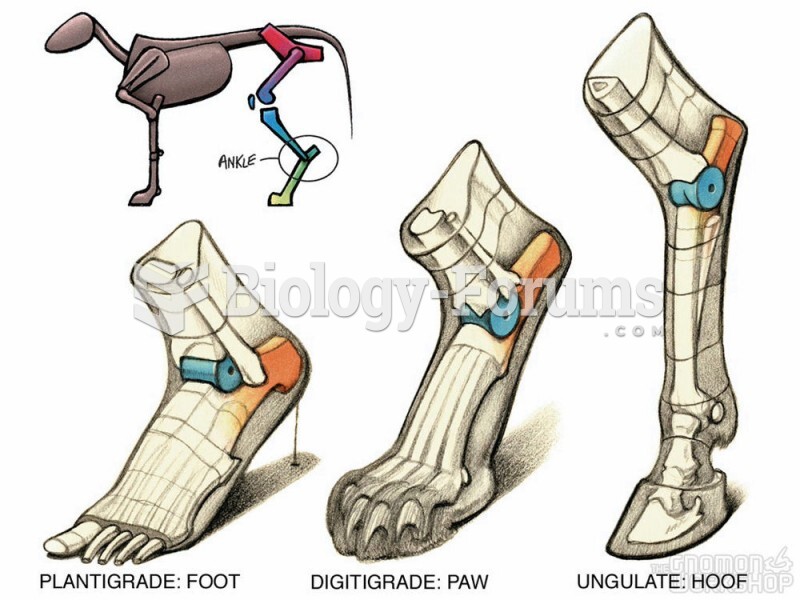|
|
|
After 5 years of being diagnosed with rheumatoid arthritis, one every three patients will no longer be able to work.
Autoimmune diseases occur when the immune system destroys its own healthy tissues. When this occurs, white blood cells cannot distinguish between pathogens and normal cells.
Increased intake of vitamin D has been shown to reduce fractures up to 25% in older people.
On average, the stomach produces 2 L of hydrochloric acid per day.
Many people have small pouches in their colons that bulge outward through weak spots. Each pouch is called a diverticulum. About 10% of Americans older than age 40 years have diverticulosis, which, when the pouches become infected or inflamed, is called diverticulitis. The main cause of diverticular disease is a low-fiber diet.
 Cast of Isotelus rex, the largest known trilobite from the middle to upper Ordovician of North Ameri
Cast of Isotelus rex, the largest known trilobite from the middle to upper Ordovician of North Ameri
 Upper Paleolithic stone tools include blade-based tools as seen here being produced from a blade cor
Upper Paleolithic stone tools include blade-based tools as seen here being produced from a blade cor





